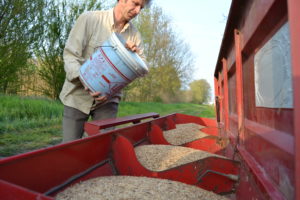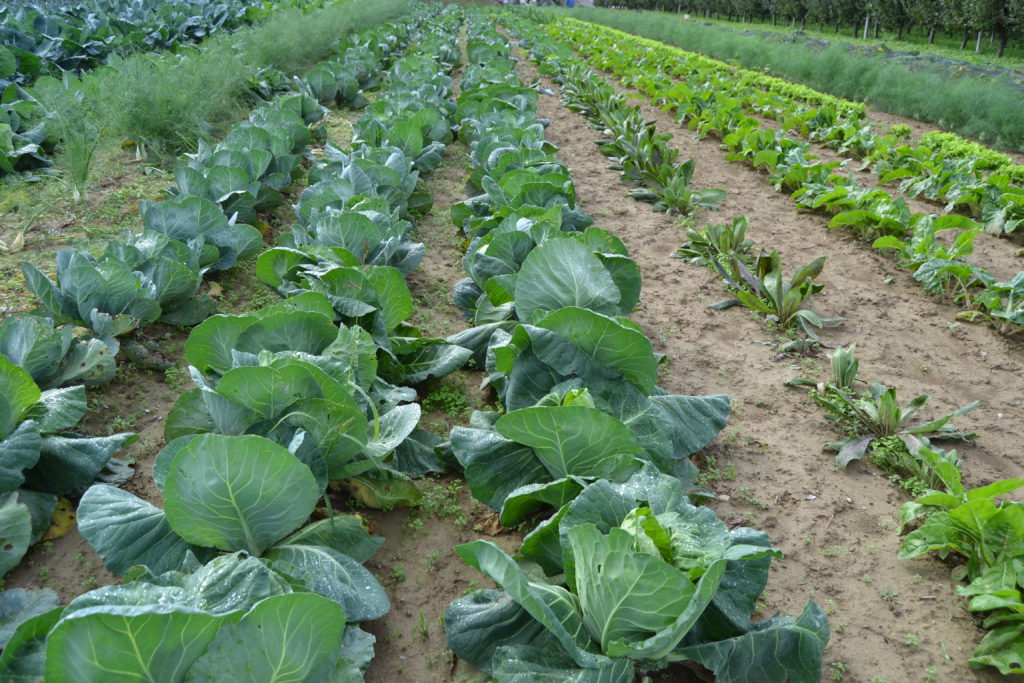Our path is… to walk together!
Agro-biological cooperatives, associations and different other organizations operating in organic farming and in the Italian solidarity economy came together and gave birth to The Humus Network. We intend to work together to increase both the vitality and the credibility of Italian organic agriculture, highlighting its environmental, health and solidarity connotations.
This is why we refer to the organic agriculture’s principles established by IFOAM (International Federation of Organic Agriculture Movements) in Adelaide (AUS) in 2005 and we are partners of the Leading Organic Alliance (LOA), the network of European organizations who hold national organic farming standards.
Furthermore, we also agree with the values that animate the Italian solidarity economy and fair trade movement (Fair Trade).
We have developed the ” Humus Network Charter of principles and best practices”, because we still have the ambition to give substance and value to the environmental, health and solidarity implications of organic agriculture and of its products as well to promote a sharing environment with all the social actors involved (agricultural producers, processors, distributors and consumers).
We therefore intend to promote an ethic and fair organic production and we mean to ground on this mission actions and relationships to be developed inside and outside the network, aiming at growth and innovation, demonstrating the production activities’ transparency and its results in terms of processes, products and services.
The social pact of the network: goals and objectives
- Building the identity of an authentically Italian organic agriculture, its essential and qualifying features and its products.
- Definition, widespread sharing and evolution of principles, criteria and good ecosystem agrobiological practices.
- Promotion of experiences and projects able to aggregate a composite community of producers, consumers, researchers and experts, interacting with a mutualistic spirit for the satisfaction of economic, social and cultural needs.
- Development of participatory and interactive sharing systems and tools, aimed at guaranteeing company and production systems and product certification.
- Monitoring organizational systems, production units, production processes and products, with a view to an open scientific collection of data and information related to environmental, health and social results.
- Providing landmarks for the support of organizational processes, production and correct information to consumers.
- Facilitating rust trelationships among network members, in the exchange of raw materials, products and services.
- Availability of systems and tools to identify and reconstitute the history and provenance of agrobiological productions and their link with the territory.
- Possibility of joining systems, processes and products of organizations belonging to the Network with those of other networks and aggregations that refer to the principles of solidarity economy.
- Setting up study programs, research, experimentation and demonstration on the themes of organic farming and sustainable and supportive practices.
- Supporting and organizing education and training programs and projects for operators, employees, technicians and consumers on the themes of organic farming and eco-solid economy.
- Communicating at international level an economic, cultural and social identity of Italian bio-agriculture and participate in all initiatives inspired by the Humus principles and values.

Humus – social network for Italian bioagriculture- Values
Price’s and social and economic relationships’ equity
A new model of agriculture must be aimed towards the creation of both economic and working relationships that respect the dignity of women and men as well as the principle of legality.
These relationships should prevent and fight against criminal and delinquent phenomena. They should also promote social justice, civic engagement, professional growth, human development an d welcome migrants.
This is why the Humus Network has taken it upon itself to grant a right pricing of products to producers and consumers as well as the most complete transparency.
Long-lasting development
The practice of organic farming has to be long-lasting and it has to have inter-generational’s aims, assuming methodologies, systems, and techniques to safeguard and regenerate the environmental and biological’s requirements of agro-ecosystems.
It all begins from the organic substance of soil (humus) and from the bio-diversity of agro-ecosystems.
Product’s quality, food goodness and taste
Organic farming basic goal is to assure good food taste and fair food value, through features that have to be objective and easily measurable, such as nutritional value, good flavor, and the absence of product’s flaws.
Social e territorial responsibility
Organic agriculture helps social networks with the purpose to protect both the environmental resources and local values. It also safeguards forms of family and handcrafted work, as well as the traditional model of “inclusive” agricultural company that includes workers and consumers/co-producers, satisfying ethically all life and work needs.
Humus Charter’s criteria and application’s procedures
Openness and participation
The Humus Network Charter of principles and best practices came from an open participatory process which involved organization and individuals with different backgrounds.
The participatory process is one of the fundamental Network’s features that allows those who join it (organizations, companies, experts, consumers) to contribute stressing out limits, contradictions and opportunities for improvement and development.
Upgrading
Companies are organized systems that do not stop to evolve and the Humus Charter this feature for its subscription and application. For this reason, the access conditions are important as well as the availability and commitment to undertake a path of development and growth.
Flexibility
The Humus Charter mainly aims at identifying criteria for the application of the organic farming method, setting measurable and evaluable objectives of protection and increasing of the natural bio organic farming’s logical cycles and of the natural qualities of the products. Operators are free to identify with their skills and choices appropriate production methods in order to ensure agro-systems’ organic requirements and to pursue a sustainable and high-quality production also from the economic point of view.
No-bureaucracy
In order to guarantee production systems and products, the Humus Charters refers to the existing formal requirements (documents and records related to the adhesion to the organic farming control and certification system as well as agricultural and food law qualifications) and it relies on the responsibility and capability of the operators who are supposed to make detectable and demonstrable the main features of their process.
Recognition and reciprocity
Farm and companies which adopt guidelines, methods and systems that go along with the Humus Charter can join the network project and see their production units and products guaranteed. In wider terms the network promotes the principles of reciprocity and mutual recognition are promoted.
